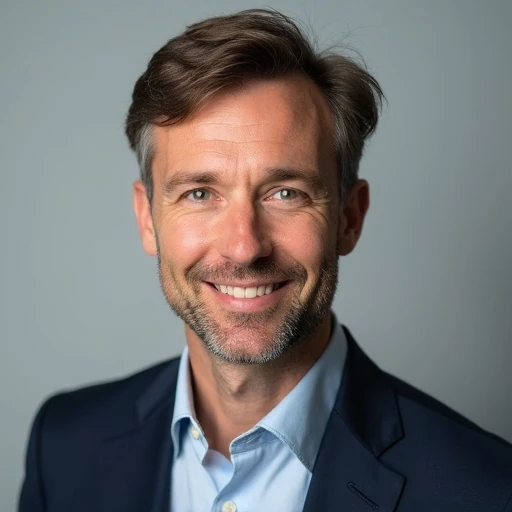Despite widespread concern that New York City's incoming mayoral administration could trigger a corporate exodus, top real estate executives report the opposite is happening. The city's commercial property market is experiencing a surge in leasing activity, with major development projects moving forward unabated since the election of Zohran Mamdani.
Industry leaders are pointing to record leasing numbers and significant long-term investments as proof that businesses remain deeply committed to the city's future, challenging the narrative of capital flight.
Key Takeaways
- New York City is on track to sign over 40 million square feet in commercial office leases by the end of the year.
- Major developers like RXR Realty and Rudin Management report no slowdown in activity or planning since the election results.
- High-profile projects, including a new two-million-square-foot tower at 350 Park Avenue, are proceeding with key partners like Citadel's Ken Griffin.
- While domestic confidence is high, some international institutional investors are adopting a 'wait-and-see' approach due to political uncertainty.
Record-Breaking Confidence in NYC's Office Market
Two of New York's most influential real estate figures are painting a picture of a city not in retreat, but in the midst of a powerful rebound. They say fears of a mass departure of companies under a new, more progressive city leadership are unfounded.
"New York City is back," said Scott Rechler, CEO of RXR Realty, speaking at a recent conference. "In our business right now, we are seeing CEO after CEO committing to the city."
This commitment is not just verbal. Bill Rudin, co-executive chairman of Rudin Management, projects that the city will surpass 40 million square feet in commercial office leases signed by year's end. This activity signals robust, long-term confidence.
"Companies are growing here," Rudin stated, emphasizing that no one is canceling plans or calling moving trucks. "No one has put their pencils down."
Major Projects Signal Long-Term Bets
The evidence extends beyond leasing numbers to brand-new construction. A significant project at 350 Park Avenue, a two-million-square-foot office tower, is moving forward. The development is a partnership involving Rudin, Vornado Realty, and hedge fund billionaire Ken Griffin of Citadel Securities.
Rudin confirmed that Griffin, known for his conservative political views, remains a committed partner in the project post-election. "Ken is committed and will have more employees at 350 Park than in Miami," Rudin noted, directly addressing speculation about capital moving to other states.
By the Numbers: NYC's Commercial Surge
- 40M+ sq ft: Projected commercial leases signed this year.
- $7 Billion: Project financing secured by RXR Realty for its NYC developments.
- 500,000 sq ft: A single law firm's total lease commitment with RXR, expanded after the election.
- 5,000: Additional seats needed for JPMorgan's new headquarters beyond its initial 10,000-person capacity.
Rechler shared similar experiences, describing an "enormous pipeline" of tenant demand. He cited a law firm that recently signed a 300,000 square foot lease for 2029 and then, after the election, returned to request an additional 200,000 square feet. "That’s the market," he said, noting an "urgency" among tenants he has not seen in his entire career.
The Driving Force: A Magnet for Talent
Executives argue that New York's enduring appeal is its talent pool. The city remains a top destination for young, ambitious professionals, a critical resource that companies cannot afford to lose.
"Every young professional wants to be in New York," Rechler said, pointing to a residential apartment vacancy rate of just 1.5% as proof. "People want to be here."
Rudin echoed this sentiment, explaining that corporate decisions are ultimately driven by workforce needs. "The people they want to be working in the companies are here in New York City," he said.
This demand for a vibrant, urban lifestyle is a fundamental economic driver that appears to outweigh political anxieties for many domestic business leaders.
International Investors Show Caution
While the domestic outlook is strong, the perception of New York's political climate is causing some hesitation among global investors. Rechler, who also serves on the board of the New York Fed, noted a distinct anxiety among overseas institutions.
"When I leave the city and travel the world, they all have this big anxiety," Rechler explained. "I’ve been in the Middle East and Europe and the first thing people want to talk about is Mamdani."
He specified that rhetoric around policies like a "rent freeze" can spook foreign investors in the multi-family housing market. This has led some institutional funds that were in talks with RXR to temporarily pull back, preferring to see how the new administration's policies unfold.
Rechler described a potential "chill in capital flows" from this specific investor class, even as the commercial office market, driven by domestic companies, continues to thrive.
A Pragmatic Approach to Governance?
Both executives, who have met with Mayor-elect Mamdani, expressed a belief that the realities of governing the city will necessitate a more moderate approach than his campaign platform might suggest.
Historical Context: From Activist to Mayor
Rudin drew a parallel to former Mayor Ed Koch, who was a "very liberal Greenwich Village congressman" before moving to the political center upon taking office. The executives believe Mamdani may follow a similar path as he confronts the practicalities of managing a $116 billion city budget.
They note that Mamdani has already softened his initial stance on the private sector's role in housing. "Hopefully, Mayor-elect Mamdani understands he needs to manage and operate a $116 billion budget," Rudin said.
Rechler contrasted his initial meeting with Mamdani to a past encounter with former Mayor Bill de Blasio. He recalled de Blasio telling a room of business leaders, "none of you elected me and I’m not here to serve you." In contrast, Rechler said Mamdani came prepared and acknowledged the need for public-private partnerships.
"The proof will be in the pudding, but he realizes that he needs to lean into public-private partnerships," Rechler observed. "This guy at least starts with ’I know I need business people to work with to be successful.”
Furthermore, they highlighted the role of the state government as a fiscal check. New York's governor holds significant authority over the city's finances, a legacy of the 1970s financial crisis.
"At the end of the day, the governor has the veto pen on taxes," Rechler stated, adding that Governor Kathy Hochul has publicly committed not to raise income taxes. This state-level oversight provides another layer of stability for businesses concerned about drastic local policy shifts.





